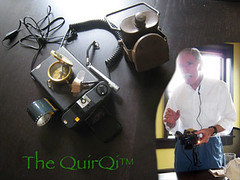In the conventional, “textbook” way of doing things, early-stage companies secure initial funding from “friends and family members” or angel investors, then through crisp and timely execution of a well-articulated business plan graduate to a stage of development, and level of sophistication where they are able to attract investment from venture capital firms. The company typically would be formed as a “C” corporation, would recruit a CFO or VP Finance to generate all the projections/spreadsheets and implement all the operational controls that VC’s expect, engage legal counsel to pull together the standard set of documents for a Series A funding round with the standard set of preferences, etc., etc. The company is then set on a standard three to five year trajectory towards either an initial public offering, or as a candidate for acquisition by a large, publicly traded technology or web services company. All bog standard, all terribly predictable and all terribly…uninteresting. But oh! so tempting to head down that well-trodden path as the lowest-friction, least risky way to bring a new idea to fruition.
But, what happens when the core idea of the company itself – how it should be structured, how it should behave in society, what it’s financial and human/social objectives are – is largely at odds with these conventions? Should the founders, board members and staff opt to head down the well-trodden “conventional” path and hope to preserve at least some of the core values and objectives of the company? Or take a chance in pioneering a new way of building a company; one that combines a resolutely for-profit technology business with a deep commitment to social issues? (more…)











